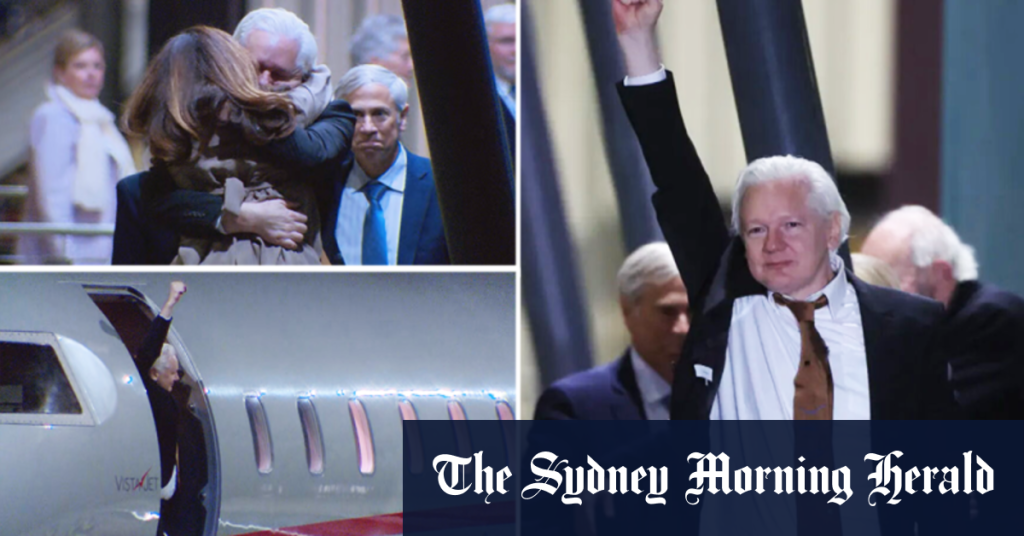Julian Assange, the founder of Wikileaks, woke up in Australia as a free man after a 14-year legal battle that involved multiple countries. This marked a significant moment for Assange, who had faced numerous legal challenges and controversies throughout his career. Despite the obstacles he had faced, Assange was finally able to return to his home country and begin a new chapter in his life.
Assange’s arrival in Australia was met with both relief and excitement, as many supporters had been following his case closely and were eager to see him free. The long legal battle had taken a toll on Assange, both personally and professionally, as he fought against extradition and various charges related to his work with Wikileaks. His return to Australia symbolized a fresh start for Assange, who could now begin to rebuild his life and move past the legal challenges that had plagued him for over a decade.
Throughout his career, Assange had been a polarizing figure, with supporters praising his efforts to expose government secrets and promote transparency, while critics accused him of endangering national security and compromising diplomatic relations. Despite the controversy surrounding his work, Assange remained committed to his mission of uncovering the truth and holding those in power accountable. His return to Australia as a free man was a testament to his resilience and determination in the face of adversity.
As Assange settled back into life in Australia, he faced a new set of challenges and opportunities. While he was free from the legal battles that had consumed his life for so long, Assange now had to navigate the complexities of rebuilding his reputation and reestablishing himself in the public eye. With the support of his followers and allies, Assange was hopeful that he could continue his work as an advocate for transparency and justice, despite the obstacles that lay ahead.
The impact of Assange’s legal battle and eventual return to Australia reverberated around the world, sparking discussions about freedom of speech, government transparency, and the role of whistleblowers in society. Assange’s case had raised important questions about the balance between national security and the public’s right to know, and his release from custody sparked both celebration and concern among those who had followed his case. As Assange began this new chapter in his life, the world watched closely to see what the future would hold for the controversial figure.
In conclusion, Julian Assange’s return to Australia as a free man marked a significant moment in his long and turbulent career. After years of legal battles and controversy, Assange was finally able to begin a new chapter in his life, free from the constraints of extradition and imprisonment. As he settled back into life in his home country, Assange faced a new set of challenges and opportunities, as he worked to rebuild his reputation and continue his mission as a champion of transparency and justice. The impact of Assange’s case reverberated around the world, sparking important discussions about freedom of speech, government transparency, and the role of whistleblowers in society.


